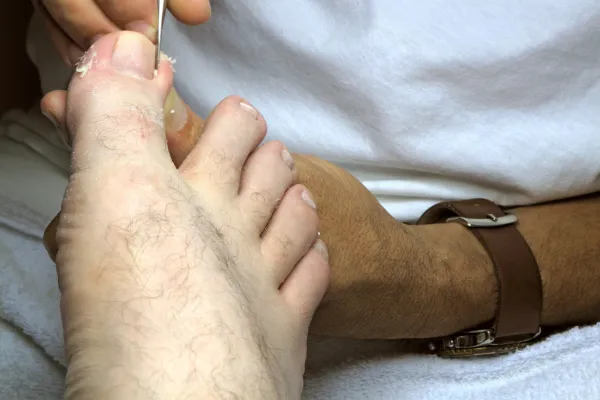Tips & Advice From West Haven Foot and Ankle Center

Recognising the Signs of Infection from Ingrown Toenails
Ingrown toenails are a common issue that, if left untreated, can lead to painful infections. At West Haven Foot and Ankle Center, we believe that understanding the signs of an infection can help you seek timely treatment and prevent complications. This blog post will guide you through recognising these signs and understanding when it's crucial to seek professional help.
What is an Ingrown Toenail?
An ingrown toenail occurs when the edge of a toenail grows into the skin of the toe. This can cause pain, redness, and swelling. If the skin breaks, bacteria can enter and cause an infection.
Signs of Infection
It’s important to monitor any ingrown toenail for signs of infection. Common symptoms include:
Increased Pain and Sensitivity: Pain that intensifies or becomes throbbing can indicate an infection.
Redness and Swelling: Look for redness that spreads and swelling that worsens, as these are typical signs of infection.
Warmth: The area around the ingrown toenail may feel unusually warm or hot to the touch.
Pus or Drainage: Any pus or fluid draining from the area, especially if it's yellow or green, is a clear indicator of infection.
Foul Odor: An unpleasant smell coming from the toe can also signify an infection.
Overgrowth of Granulation Tissue: Sometimes, extra tissue forms around the affected area, which is often red and easily bleeds.
When to Seek Professional Help
While some ingrown toenails can be managed at home, an infection is a serious issue that requires professional attention. Here are a few guidelines to help you determine when to seek help:
Persistent Symptoms: If pain, redness, or swelling persists despite home treatments, it's time to see a podiatrist.
Visible Signs of Infection: Any discharge, increased warmth, or foul odour should prompt a visit to a healthcare provider.
Systemic Symptoms: If you experience fever or chills, the infection may be spreading beyond the toe, requiring immediate medical intervention.
Underlying Health Conditions: Individuals with diabetes, peripheral vascular disease, or immune deficiencies should seek immediate help for any foot issues, including ingrown toenails, due to higher risks of complications.
Conclusion
Recognizing the signs of an infection from an ingrown toenail is crucial for preventing further complications. If you suspect an infection, it's important to consult with a podiatrist who can provide appropriate treatment. At West Haven Foot and Ankle Center, our team is dedicated to ensuring your feet remain healthy and pain-free. Contact us today if you need advice or treatment for an ingrown toenail or any other foot-related concerns.
Ask West Haven Foot and Ankle Center And Their Team
Fill in the form to request a call from our team. One of our team members will call you for FREE and answer any questions or concerns you may have about your condition
Where To Find West Haven Foot and Ankle Center

If you have any questions before scheduling an appointment or for general inquiries, please use the contact us button below. Our team will promptly reach out to assist you.
Opening Hours
Monday: 8am - 5pm
Tuesday: 8am - 5pm
Wednesday: Closed
Thursday: 8am - 5pm
Friday: 8am - 5pm
Saturday: Closed
Sunday: Closed

